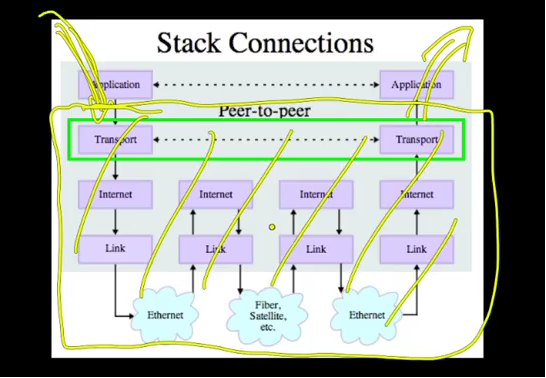Week 6
Technology: Transport Control Protocol (TCP)
Welcome to Week 6 of IHTS. We are in our second week of the more technical bits of the course. I try to keep the technical bits interesting and not go into too much detail.
This week, we’ll be covering transport control protocol (TCP). The Transport layer is built on the Internetwork layer and is what makes our network connections reliable.
Transport/Reliability
Transport Layer
今天所要讲的是Transport Layer,即传输层。
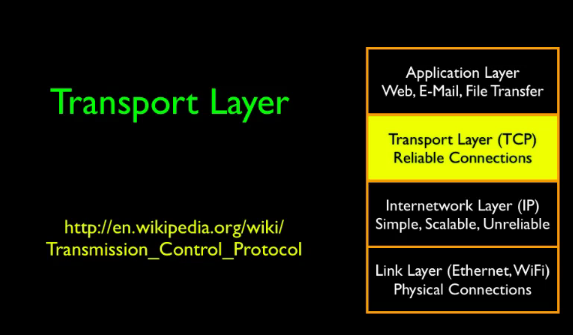
首先,回顾一下之前所讲的内容。
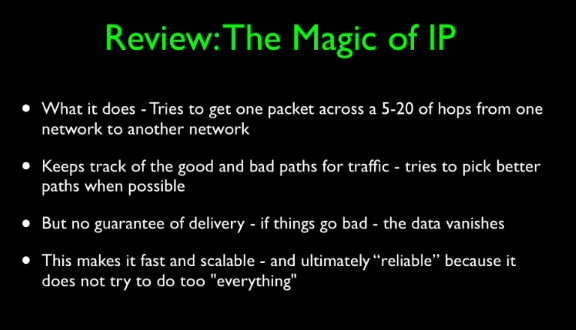
The magic of this is there is no interim long term storage inside the network.
data传输如此之快,而是因为在网络层并不保证无差错传输,而是尽最大努力传输。
So one of the things that makes IP so fast is that it is not demanded to be perfect, it is not demanded to, to deliver data in order, and it's not demanded to, it, it's, there's no requirement that it doesn't lose data.
其实保证是否数据有没有错误看传输层。
And those are the kind of problems we solve with a TCP layer. How fast is the underlying network, how reliable is it and if something goes wrong what do we do to deal with that. So the key idea in TCP/IP is that when we send some data, we break it into packets and then we send each one. And then we keep them until they get an acknowledgement from the other side and then and only then do we throw them away.
若没有收到,就一直尝试,直到对方收到。
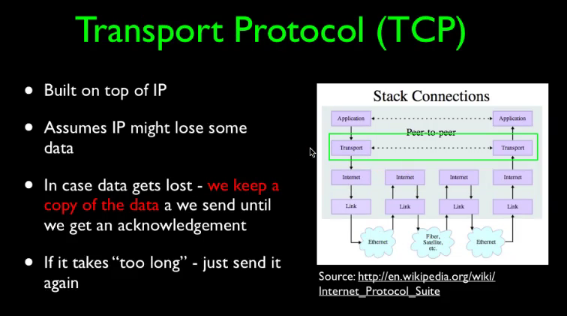
老师这里做了一个演示,如下图所示:
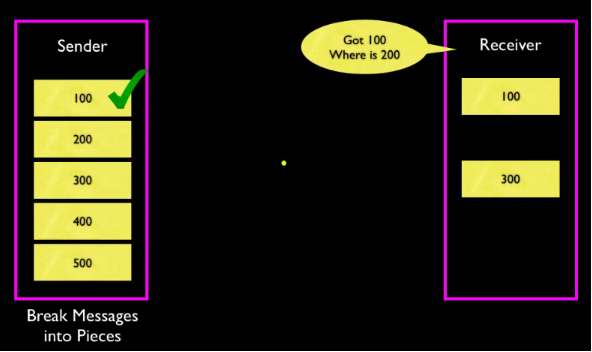
在路由中并不要求很多存储,设计上希望其轻巧、动态。
The storage requirements in the middle, the routers, this is the IP basically the network of networks, they, we didn't design these to require a lot of storage. We wanted them to be fast, we wanted them to be agile, we wanted to be dynamic, we wanted to be clever, but we also gave the right to fail. So we didn't demand storage. We didn't say, hey, hold on to packets, you know, all over the place. Just, store up piles of packets, piles of packets and pile up in these, we don't ask that. No router has to keep the packets. As a matter of fact, routers are supposed to throw packets away to communicate back and forth between the system that maybe things aren't working so well and, don't use me to get to California.
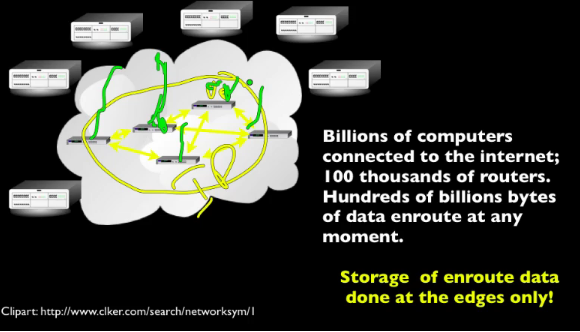
On the other hand, with hundreds, maybe, you know, hundreds of thousands or millions of routers but billions of computers on the outside. So we need a way to make this reliable. So we need to have memory to store the packets while they're in flight so we can retransmit but we store the packets in the computers that are outside. And there are billions of these computers, there are billions of them. Every computer that you can carry around, every laptop. come here. Every time we add another computer to the network, we add storage for packets that are being sent. So when your computer or, or phone is sending across the network, it is responsible for retaining its own copies. It does not expect the inner part of the network to do so. And that is absolutely brilliant, so it's what really makes this work. And so that's kind of a great oversimplification of what's going on.
下面将介绍Van Jacobson,他拯救了网络?!but he is a shy guy.
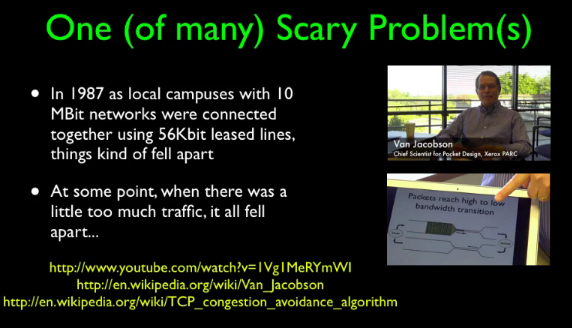
Van Jacobson - Slow Start Algorithm
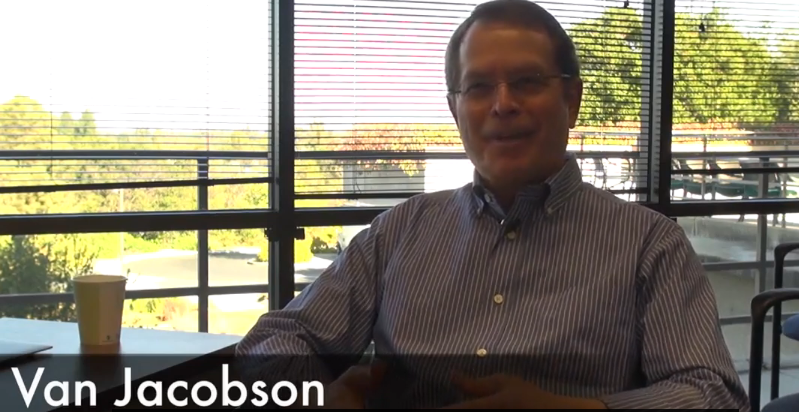
如果对他感兴趣那就给我留言吧,我将会在以后介绍。
The Domain Name System
(Baidu)DNS:The Domain Name System,域名系统。万维网上作为域名和IP地址相互映射的一个分布式数据库,能够使用户更方便的访问互联网,而不用去记住能够被机器直接读取的IP数串。通过域名,最终得到该域名对应的IP地址的过程叫做域名解析(或主机名解析)。DNS协议运行在UDP协议之上,使用端口号53。
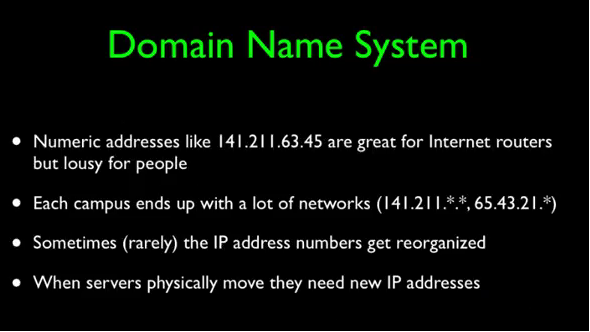
简单一句话,DNS就是帮助用户记住网站,比如说我们都知道百度的网址:www.baidu.com,而不用去记住百度的IP地址:163.177.151.110。再举一个例子,DNS就像一本电话簿,你不用可以去记住朋友的电话号码,你只需要知道朋友的名字,电话簿会帮你记着电话号码。
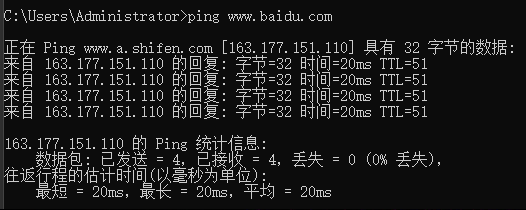
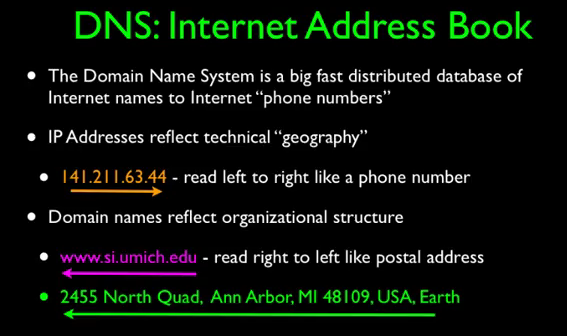
DNS是分层次的:
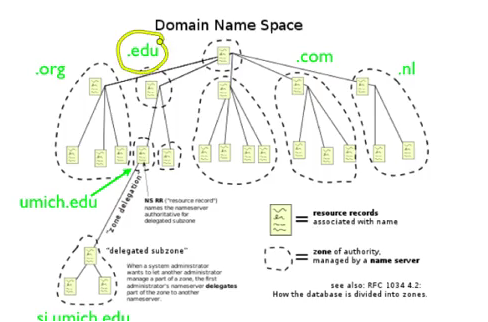
其中大学可以分配到EDU后缀的,com和org需要竞争得到。
TCP Wrap Up
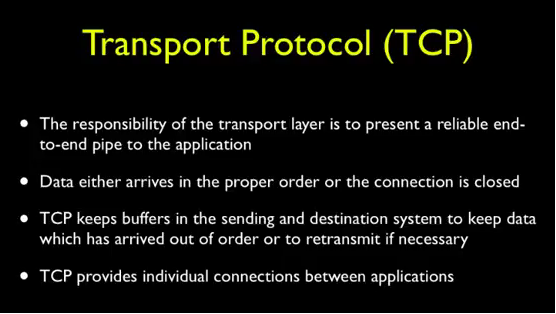
传输层协议需要弥补IP层的不完善性,即上面所讲的保证数据的正确性、完整性由传输层来负责。
